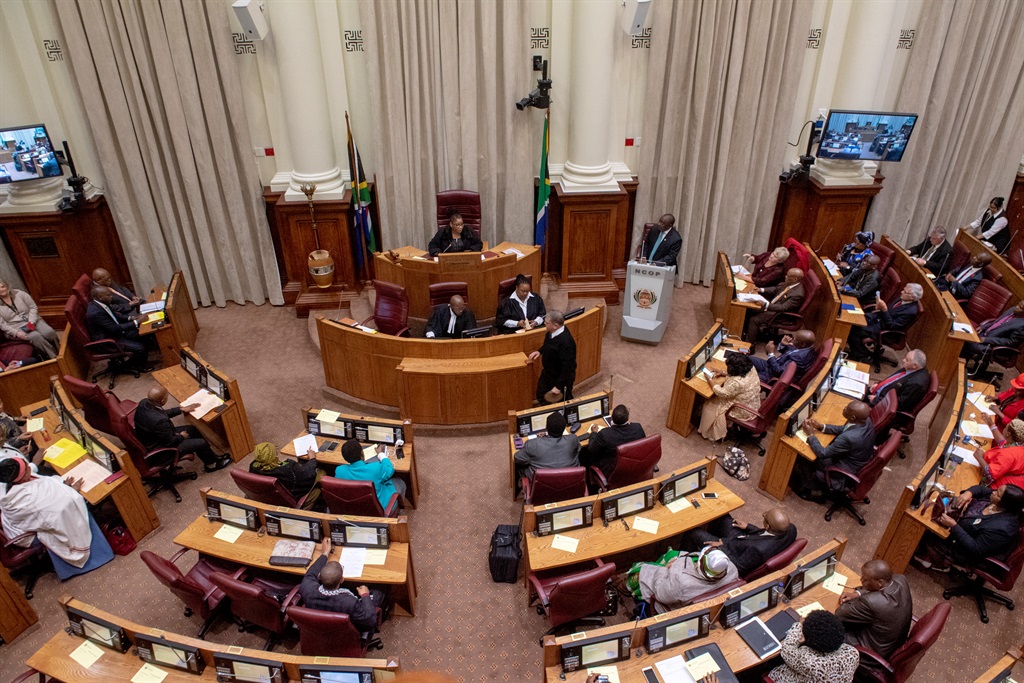
Asking questions – it’s one of the few ways members of Parliament can hold the executive accountable.
However, the efficacy of this oversight mechanism depends on the extent to which the executive answers these questions and whether parliamentarians attend oral question time and committee meetings.
This is not just important for oversight but also transparency as principles of good governance.
Ministers often come under fire for dodging questions. The Democratic Alliance last year took aim at former social development minister Bathabile Dlamini whom they claimed failed to answer 93% of the questions relating to the South African Social Security Agency.
She was not alone.
Many South Africans were spectators when question time with former President Jacob Zuma turned into chaos as opposition MPs felt he was not answering their questions – especially those relating to the controversial upgrades of his private home in Nkandla.
So, to address persistent challenges with “unanswered questions” Parliament’s rules committee decided on a monitoring system to see which members of the executive were not answering written or oral questions in a specific timeframe.
It is also important to note that this was a first for Parliament. MPs established a subcommittee to monitor this and then report back to the rules committee.
The subcommittee must also consult with the members of the executive on why questions were not answered.
The rules committee must then consider this report and report it to the National Assembly. The leader of government business (deputy president David Mabuza) must then be notified of this.
On paper, this move is commendable.
Last week the Speaker tabled a consolidated report for the leader of government business on unanswered questions in both the National Assembly and National Council of Provinces.
It is interesting to note that since the opening of Parliament in February, members of the executive received a total of 2386 written questions in the National Assembly. By last week 278 of these remain unanswered.
Minister of Health Aaron Motsoaledi received the most written questions (361) of which 68 remained unanswered.
The minister of police received the second largest number of questions (186), of which 25 remained unanswered by last week.
Only five ministers managed to answer all their written questions but these ministers also received some of the lowest number of questions.
This might explain Minister of Women in the Presidency Bathabile Dlamini’s sudden glowing score of 12 written questions received and all these questions answered.
The picture gets interesting when one looks at which questions were not answered.
Some of the questions the minister of police failed to answer related to questions from some DA MPs on the number of senior managers and South African Police Service members with criminal records and a breakdown of the type of crimes they were found guilty of.
It can be argued that information like this is very relevant to citizens depending on the same police officers to keep them safe from crime.
The minister of health failed to answer some questions relating to nurse and doctor vacancies in hospitals, qualifications of hospital administrators and bed capacity in health facilities.
This type of information is arguably very important for MPs to give proper oversight and facilitate change and improvement in service delivery in public health facilities.
It is not yet clear if and how these ministers will be sanctioned. Monitoring questions to the executive is a welcome step but its value will depend on the consequences these ministers will face.
Any watchdog’s value is based on its teeth otherwise it risks becoming irrelevant.
Members of the rules committee, during their deliberations on the monitoring system, explored some options.
According to the Parliamentary Monitoring Group’s transcription of these meetings, one option raised was to refer these cases to Parliament’s powers and privileges committee as “an act of contempt according to National Assembly rule 10”.
The powers and privileges committee would pass a resolution, investigate whether the conduct constituted contempt of House Rules and then, based on that, proceed against the offending minister.
Right now, we have a watchdog whose first statistics were tabled last week. Now it remains to see if this watchdog will have the teeth to tackle a persistent challenge eroding the very core of Parliament’s Constitutional mandate. Only time will tell.
• This opinion piece by Alicestine October was republished with kind permission from ParlyBeat.




 Publications
Publications
 Partners
Partners








